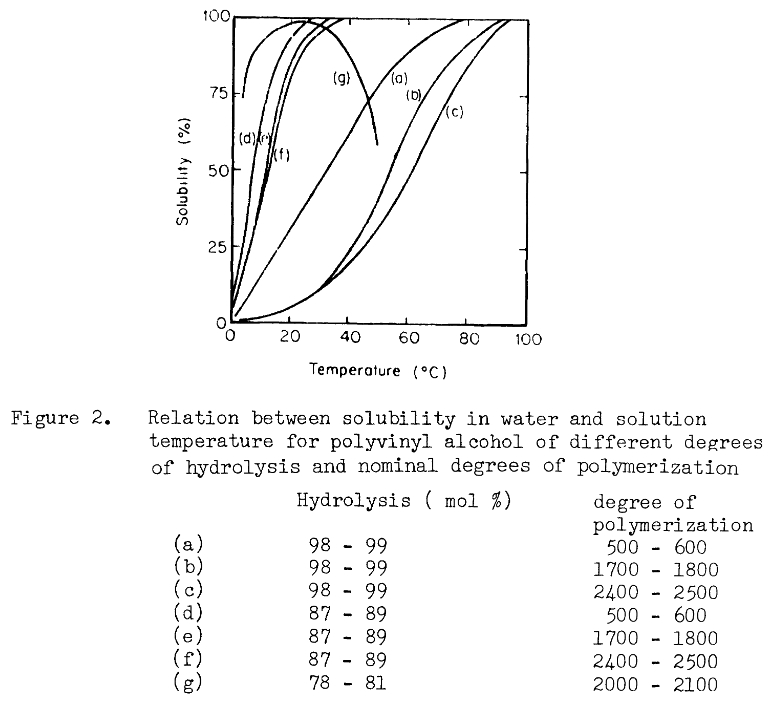Background:
Poly Vinyl Alchohol (PVA) is a plastic used for a sacrificial support material for 3D printing and sewing. This material is used specifically because it is water soluble, and can be dissolved by placing the PVA in water. As dissolving the PVA is basically a processing step, I'm interested in optimizing this step. For me, optimizing this process consists of:
- Minimizing the amount of time that the process takes
- Minimizing the cost of processing (e.g. water, heating)
- Minimizing the waste material (e.g. saturated water)
From my limited experimentation, I know that increasing the temperature of the water increases the speed that the PVA dissolves. I also know that increasing the water volume (either through water changes or just a larger processing tub) also reduces processing time. From my limited understanding, this isn't really that surprising - many chemicals have increased solubility with temperature, and increasing the volume of solvent decreases the concentration of the PVA.
Question: What is the solubility of PVA in water vs. temperature? Is there a source for a graph that ties the speed of dissolving PVA vs. temperature and PVA concentration? (How could I find this information, if that's better to answer)
(Some) Limits of my knowledge:
- I don't know if all PVA is created equal.
- I don't really know any organic chemistry.

